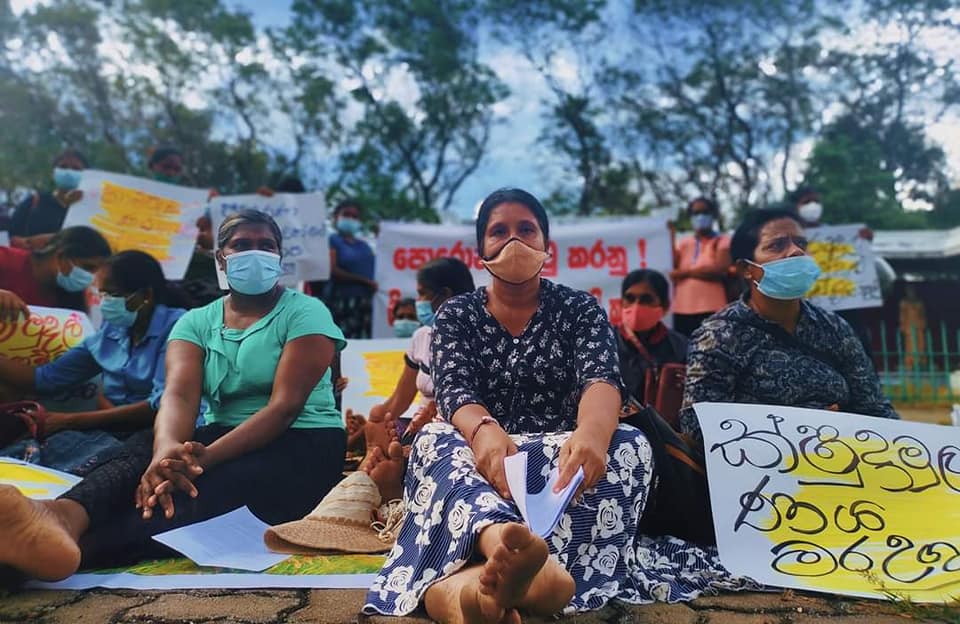Women whose lives have been toppled by exploitative microfinance debt in Sri Lanka are stepping up their struggle for justice. According to activists in Srilanka, an estimate of 28 million people are caught in a debt trap and over 200 were forced to commit suicide. In the face of the deepening indebtedness, tightening pressure from microfinance and finance companies and the neglect of the government, the Collective of Women Victimised by Microfinance has decided to call for a protest and a Sathyagraha from March 08th onwards. The protest starts at 2.00 pm at Hingurakgoda, Polonnaruwa, Sri Lanka.
The demands are as follows;
- All microfinance debt be abolished!
- All microfinance debt collection be immediately ceased until a debt audit is conducted!
- All legal action against microfinance borrowers be stopped!
- De-list all microfinance borrowers from Credit Information Bureau of Srilanka
Here is an excerpt of an article, first published on CADTM, which explains the crises faced by rural women in Srilanka.
Heavily promoted in the global south since the 1980s, microfinance seemed to offer the simplest formula for poverty alleviation – a small loan for generating self-employment, which could range from raising chickens to running a small village boutique. These initiatives were expected to generate incomes large enough to bring the poor out of poverty. This narrow vision of development has made microfinance synonymous with ‘poverty alleviation’.
Rural women became the targets for such predatory lending. The pretext was of ‘empowering’ women through self-employment.
At the outset the model itself seems to demand unrealistic payback periods and interest rates. As one woman explained, “It takes months for chickens to finally lay eggs and for incomes to be generated. But they expect us to pay-off the debt from the first week. Where will we find the money to feed the chickens and ourselves until then?” Thus, many women end up borrowing again to pay-off the initial loan.
Even in the unlikely scenario that a woman with excellent entrepreneurial skills makes 100% profits on selling eggs, it is impossible for her to make enough to pay interests charged by microfinance companies, which range anywhere between 40% to 220%. How can anyone justify such high interest rates when market interest rates remain at 14% and even credit card interest rate at 28%?
Indeed it is the high interest rates that have attracted non-banking finance companies to join the fray in ‘helping’ poor women. The exorbitant profits recorded in their books and the rapid expansion of Sri Lankan microfinance companies to Bangladesh, Myanmar, Cambodia and Vietnam are testament to who has truly benefited off microfinance!

